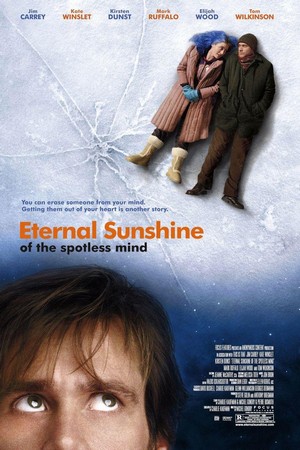
Eternal Sunshine of the Spotless Mind (2004)

Raiting: ![]() 8,4 /10
8,4 /10
Genre: Drama
Director: Michel Gondry
Stars: Jim Carrey, Kate Winslet and Kirsten Dunst
Country: United States
Release date: 19 March 2004
Length: 108 minutes


Raiting: ![]() 8,4 /10
8,4 /10
Genre: Drama
Director: Michel Gondry
Stars: Jim Carrey, Kate Winslet and Kirsten Dunst
Country: United States
Release date: 19 March 2004
Length: 108 minutes